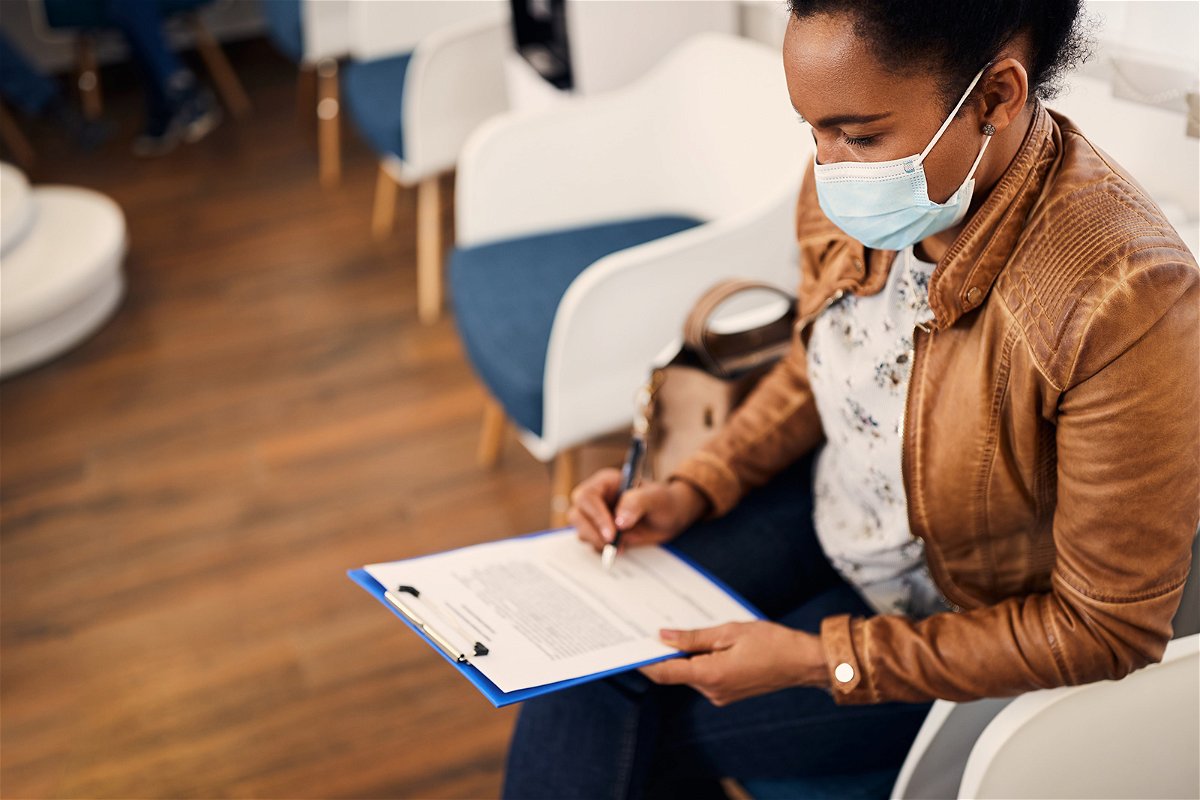Face masks are still a good idea at the doctor’s office, study says

By Jen Christensen, CNN
Signs urging everyone to mask up have largely disappeared from places like grocery stores and schools in the third year of the COVID-19 pandemic. But they remain in many medical offices, and a study published Monday says they might still be a good idea.
Even after the expiration of the US public health emergency declaration and with many Americans moving away from pandemic precautions, masks continue to offer some protection, reducing your risk of catching COVID-19 in a community setting like in a close doctor and patient interaction, according to the study, which reviewed the latest science on the protective quality of masks.
The study, published in the journal the Annals of Internal Medicine, also found that there wasn’t a significant difference in protection between surgical masks and N95 respirators in a health care setting. N95s may be slightly more beneficial, but that wasn’t completely clear from the research.
The researchers reviewed three randomized trials and 21 observational studies from around the world to understand what the evidence says about the effectiveness of N95, surgical and cloth masks to reduce transmission of COVID-19.
Some of the research they used had limitations. Evidence on surgical vs. cloth masks, for instance, or more- vs. less-consistent mask use was “insufficient,” the researchers wrote.
In an editorial published alongside the new study, Drs. Tara Palmore of George Washington University School of Medicine and David Henderson of the National Institutes of Health note that mask use became a politicized topic during the pandemic. Because gold standard evidence about their protectiveness is not available, they say, masks for patients and health care personnel should be considered a good safety measure.
Lab studies show that surgical masks and respirators are good at limiting the spread of aerosols and droplets from people who are sick with the flu, coronaviruses and other respiratory viruses. Although not 100% effective, they substantially reduce the quantities of the virus that get expelled when someone is talking or coughing.
There can still be transmission of a virus from patient to staff or staff to patient when both people are masked, but it’s rare.
Palmore and Henderson say that one of the big reasons why they think people should wear masks in health care settings is because people who work in these places, for a variety of reasons, are “notorious for coming to work while ill.”
Earlier research has shown that half to two-thirds of people who work in health care settings have worked while they had some kind of respiratory symptoms. People who are pre-symptomatic can also spread the virus, or it may be hard to tell if someone is sick if they have been vaccinated and have milder symptoms, so just asking people who are sick to put a mask on may not stop the spread.
“Exposing patients unnecessarily to infections that are preventable by masking seems directly contrary to the principles of patient safety,” the commentary says. “For all of these reasons, we advocate remaining masked during patient interactions.”
Dr. Syra Madad, an infectious disease epidemiologist at the Harvard Belfer Center for Science and International Affairs, agrees that it is important for health systems to do whatever they can to prevent transmission of COVID-19, including having workers wear a mask during patient interactions — “especially among our most vulnerable patients, and sometimes it is hard to know who is most vulnerable and immunocompromised,” said Madad, who was not involved in the new research.
She said people don’t necessarily have to wear them in elevators or hallways, but during clinical encounters, it’s good to play it safe.
Now that people have gotten used to masks, she says, with flu season and RSV season coming this fall, more health care workers should consider wearing them.
“We all realize the importance and utility of a mask,” Madad said. “A culture of safety shows you’re being respectful to your patients.”
She added that if a patient prefers that the provider not wear a mask, like if they’re having a hard time hearing or understanding the other person, that should be OK, too. But she says that the default should be a mask in clinical interactions.
“Even though the public health emergency for COVID-19 has been declared over, we still see over 1,000 Americans dying every single day from this virus, and that is still unacceptable. It’s still very high, which means it’s still a threat,” Madad said. “As much as we want to downplay it, and it’s not an emergency any more, but it’s certainly a threat.”
The-CNN-Wire
™ & © 2023 Cable News Network, Inc., a Warner Bros. Discovery Company. All rights reserved.
